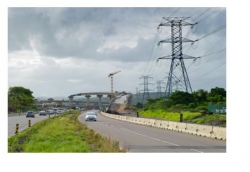Special Economic Zones and Building Manufacturing in KZN2014-11-18 Frontier Advisory - a leading research, strategy and advisory firm and key stakeholders including the Dube TradePort; the Richards Bay IDZ; Durban Investment Promotion Agency(DIPA); Trade and Investment KZN and KZN Economic Development, Tourism and Environmental Affairs hosted a discussion on the topic: “Special Economic Zones and Building Manufacturing in KZN†on the 7 November 2014. Introducing the topic Martyn Davies CEO of Frontier Advisory quoted a World Economic Forum report on manufacturing, “Over the past several decades, the globalisation of the manufacturing ecosystem has driven more change and impacted the prosperity of more companies, nations and people than at any time since the dawn of the Industrial Revolution.†KZN manufacturers are increasingly under pressure to ensure that a number of challenges are addressed in order to maintain their status as major contributors to the GDP of the provincial economy. Peter Draper, Director of Tutwa Consulting emphasized that in order to be competitive manufacturers must ensure that they are part of global and regional global value chains, which are often driven by multinational companies. To maintain a comparative and competitive advantage it is necessary that KwaZulu-Natal addresses aspects such as infrastructure, legislation, a skilled labour supply, wage dynamics, and the availability of human capital and technology. Leveraging off KwaZulu-Natal’s advantages In Draper’s opinion, KwaZulu-Natal’s geographical location and typography does not favour its position as a gateway to the African continent and that there are off shore rivals with the potential to challenge its future status. However, the province does have advantages such as a deep water ports as well as a plentiful supply of labour. In order to leverage off KwaZulu-Natal’s advantages, action should be taken to ensure that:
The Richards Bay Industrial Development Zone which is now deemed to be a SEZ has seen a notable increase in its investor pipeline since its status has changed and is very confident of its future success. However, the incentive package to be offered by the DTI for investors in SEZ’s in South Africa is still being finalised, which is delaying investment in some instances. Raymond Padayachee, Head of Industry and Manufacturing Sector for South Africa and Africa, Siemens, emphasized that South African manufacturers know what needs to be done to succeed. Mechanisation is an increasing component of efficiency and effectiveness in companies. In addition, he said, “It is not sufficient to just be producing a product, but to be producing a product at state of the art manufacturing facilities that competes on the global stage as being exceptional.†Much emphasis was also placed on skills development of the work force for future growth of the manufacturing sector. Padayachee said the current workforce is not sustainable and a high priority is the need for skilled labour. He stressed, “We cannot create jobs without adding value. In order to attract investment, we need to create more jobs higher in the value chain.†In addition, multinational companies setting up base in KwaZulu-Natal bring new skills to the benefit of the local workforce. Restrictions placed on immigrant labour will be detrimental to the growth of human capital in the region. Russell Curtis, Head of Dipa, stressed that the municipal and provincial government has put much focus on promoting economic growth through building infrastructure and institutional frameworks. He emphasized the need for projects in KwaZulu-Natal to be implanted in partnerships with multi nationals in order to participate in global value chain. Van Coller said, “KZN needs to put its best foot forward and work on the elements where we are not efficient. KZN has a good story to tell, we have to be competitive and cannot be complacent. We have the opportunity and we need to be hungry for business and aggressively get things done. Now is the time.†|
Special Economic Zones and Building Manufacturing in KZN
Copyright © 2024 KwaZulu-Natal Top Business
